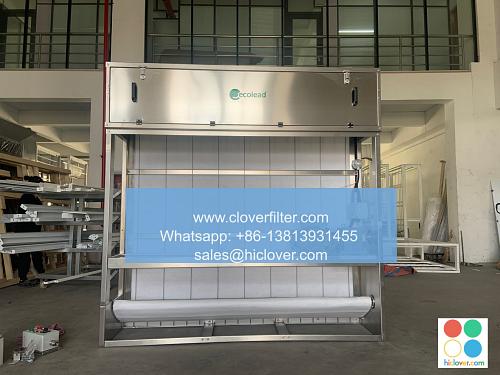Air Filter and Allergies and Asthma

As the world becomes increasingly aware of the importance of indoor air quality, air filters have emerged as a vital tool in the fight against allergies and asthma. Air Purification Systems equipped with HEPA filters and Activated Carbon Filters can significantly reduce the presence of airborne allergens and irritants, creating a safer and healthier environment for individuals suffering from Respiratory Issues. In this article, we will delve into the world of air filters, exploring their Application Areas, Key Features, and Benefits for individuals with Allergies and Asthma.
Understanding Allergies and Asthma
Allergies and asthma are two of the most common Respiratory Conditions affecting millions of people worldwide. Allergens such as Pollen, Dust Mites, Pet Dander, and Mold Spores can trigger Allergic Reactions, causing symptoms such as Congestion, Sneezing, and Shortness of Breath. Asthma, a chronic Respiratory Disease, can be exacerbated by these allergens, leading to Asthma Attacks and other Complications. Effective Air Filtration Systems can play a crucial role in reducing the presence of these allergens, creating a healthier indoor environment.
Types of Air Filters and Their Applications
There are several types of air filters available, each with its unique Features and Application Areas. Some of the most common types of air filters include:
* HEPA Filters: Designed to capture 99.97% of Particles as small as 0.3 Microns, HEPA filters are ideal for removing Allergens such as Pollen, Dust Mites, and Pet Dander.
* Activated Carbon Filters: Effective in removing Odors, Gases, and Chemicals from the air, activated carbon filters are often used in combination with HEPA filters.
* UV Air Purifiers: Using Ultraviolet Light to kill Bacteria and
Benefits of Air Filters for Allergies and Asthma
The benefits of air filters for individuals with allergies and asthma are numerous. Some of the most significant advantages include:
* Reduced Allergen Exposure: By removing allergens from the air, air filters can significantly reduce the risk of Allergic Reactions and Asthma Attacks.
* Improved Indoor Air Quality: Air filters can remove a wide range of airborne pollutants, creating a healthier and more comfortable indoor environment.
* Relief from Respiratory Symptoms: By reducing the presence of allergens and irritants, air filters can provide relief from Congestion, Sneezing, and Shortness of Breath.
Conclusion
In conclusion, air filters play a vital role in reducing the presence of allergens and irritants in indoor environments, creating a safer and healthier space for individuals with allergies and asthma. By understanding the different types of air filters and their Application Areas, individuals can make informed decisions about which Air Purification System is best for their needs. Whether you suffer from Seasonal Allergies or Chronic Asthma, investing in a high-quality air filter can be a valuable step towards Improving Indoor Air Quality and Reducing Respiratory Symptoms. You haven’t provided a question or topic for me to address. Please provide more context or information so I can assist you better. What would you like to talk about or ask?

